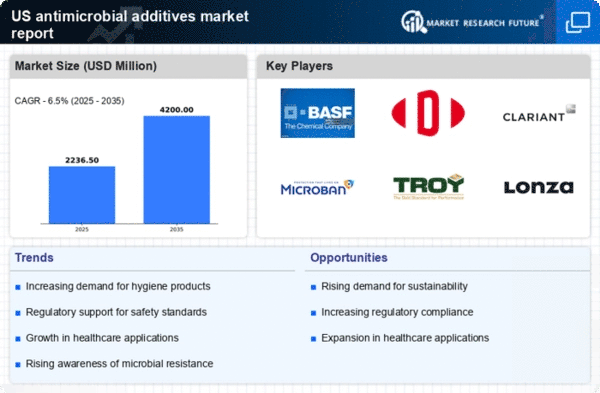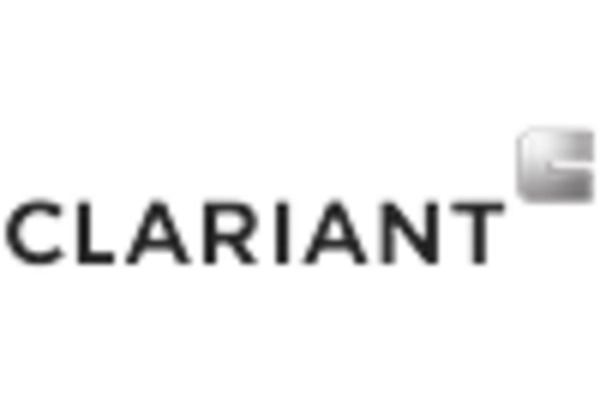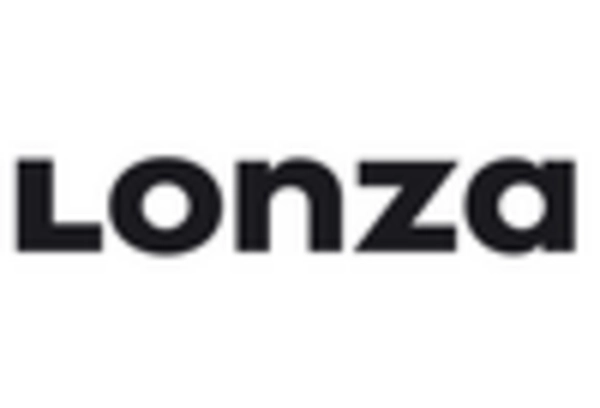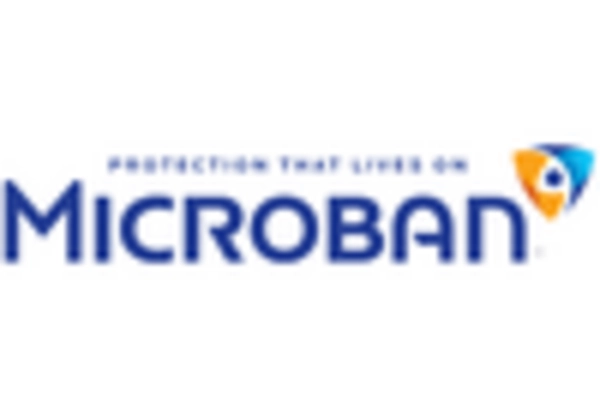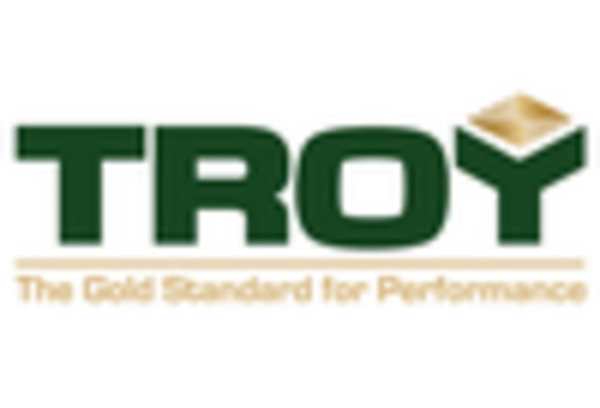The antimicrobial additives market is currently characterized by a dynamic competitive landscape, driven by increasing demand for hygiene and safety across various sectors, including healthcare, food processing, and consumer goods. Key players such as BASF SE (DE), DuPont de Nemours Inc (US), and Microban International Ltd (US) are strategically positioned to leverage innovation and sustainability in their operations. BASF SE (DE) focuses on developing advanced antimicrobial solutions that cater to diverse applications, while DuPont de Nemours Inc (US) emphasizes partnerships to enhance its product offerings. Microban International Ltd (US) is notable for its commitment to integrating antimicrobial technologies into everyday products, thereby shaping the competitive environment through a blend of innovation and market responsiveness.The market structure appears moderately fragmented, with several players vying for market share through localized manufacturing and optimized supply chains. This fragmentation allows for a variety of business tactics, such as regional expansions and tailored product development, which collectively influence the competitive dynamics. The presence of multiple key players fosters a competitive atmosphere where innovation and customer-centric strategies are paramount.
In September DuPont de Nemours Inc (US) announced a strategic partnership with a leading healthcare provider to develop antimicrobial coatings for medical devices. This collaboration is significant as it not only enhances DuPont's product portfolio but also positions the company at the forefront of healthcare innovation, addressing critical needs for infection control in medical environments. Such partnerships are likely to bolster DuPont's market presence and drive future growth.
In October Microban International Ltd (US) launched a new line of antimicrobial additives specifically designed for the food packaging industry. This initiative reflects a growing trend towards food safety and hygiene, indicating Microban's proactive approach to market demands. The introduction of these additives is expected to strengthen the company's competitive edge by catering to the increasing regulatory requirements and consumer preferences for safer food packaging solutions.
In August BASF SE (DE) expanded its production capabilities in North America by investing in a new manufacturing facility dedicated to antimicrobial additives. This strategic move underscores BASF's commitment to meeting the rising demand in the region while enhancing its operational efficiency. The investment is anticipated to not only increase production capacity but also improve supply chain reliability, which is crucial in a market where timely delivery and quality are essential.
As of November the competitive trends in the antimicrobial additives market are increasingly defined by digitalization, sustainability, and the integration of advanced technologies such as AI. Strategic alliances are becoming more prevalent, enabling companies to pool resources and expertise to innovate more effectively. Looking ahead, the competitive differentiation is likely to evolve from traditional price-based competition towards a focus on innovation, technological advancements, and robust supply chain management. This shift suggests that companies that prioritize these aspects will be better positioned to thrive in an increasingly complex market.


